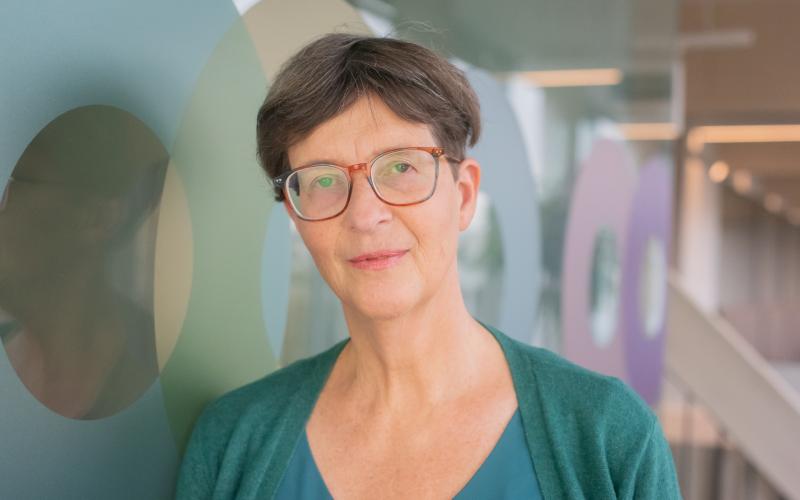
Jeanine Verhoef considers it important to stand up for the rights of the individual. That is precisely what she does in 2020 as project leader of the Access to Social Provisions theme. What are social provisions? And what does Jeanine find so satisfying about her work with the National Ombudsman?
“From healthcare to education, from benefits to a driving licence. These are all ‘social provisions’ to which everyone is entitled. It is the government’s task to ensure proper access. In practice, this is not always the case.”
Obstacles
“The Access to Social Provisions theme is concerned with some very important questions. Can everyone participate fully in society? Where can you find the help you need? There should be no hurdles stopping the citizen from claiming his or her entitlements. However, we can speak of hurdles if it takes months to process an application, if someone is endlessly referred from one department to another, or if the procedures are too complex.
Take the driving licence for example. If you are 75 or older and your licence is about to expire, you must undergo a medical examination to confirm your fitness to drive. That is something of an imposition at the best of times. In recent months, long waiting lists and a shortage of medical officers have meant that it takes a very long time for the licensing authority (the CBR) to reach a decision. This can cause considerable inconvenience if, for example, you have to drive to the hospital at short notice.
The CBR is currently working hard to clear the backlog. It has also undertaken to find ways to allow people to continue to drive even when their licence has expired.”
More than you might think
“On the one hand, the corona crisis has caused limited access to some provisions. Home care services have been curtailed due to the risk of infection, as have visits by youth welfare departments. At the same time, however, corona has had a positive impact. Almost overnight, local authorities managed to find temporary accommodation for the homeless, something that had seemed impossible in the past. So, there is more possible than you might think.”
Address
“I am particularly proud of our investigation into the problems experienced by the ‘self-reliant homeless’. These are people who find themselves without a permanent address, perhaps due to unemployment, divorce or debt, but who do not attract the attention of social services because they do not have addiction or psychiatric problems. This group frequently falls ‘under the radar’.
Nevertheless, their problems can quickly mount up. Because they have no residential or postal address, they are unable to register with a local authority and thus unable to claim benefits or other entitlements. It will also be difficult or impossible to obtain health insurance.
The National Ombudsman has drawn attention to such problems, calling on the government to ensure that this group does not descend into further difficulties. Cases should be considered on an individual basis, with a focus on finding solutions. What does this person actually need? Could he be offered temporary accommodation in, say, a holiday park whereupon he has an address which will allow registration? Could he be allowed to retain his registration at his former address, even though he is no longer actually living there?
In 2020, we examined what has been done further to our recommendations. The Ministry of Social Affairs has produced an action plan under which more housing, both temporary and longer-term, will be made available. Practical assistance for the homeless is to be improved, and measures are to be taken to prevent people becoming homeless in the first place. Progress is gradual, but at least the first steps have been taken.”
Lessons from the corona crisis
“Some valuable lessons can be learnt from the corona crisis. Many things have actually gone a lot better in recent months, such as providing shelter for the homeless. At the very least, they have been given some ‘breathing space’ in which to get their lives back on track. I hope that the proactive approach taken by government authorities will become the standard in future.”
Who is Jeanine?
Jeanine Verhoef (61) lives in Rotterdam. She enjoys walking, cycling and singing. Jeanine joined the National Ombudsman organisation in 2005, having previously been a practising lawyer specialising in immigration law.
From a young age, she has recognised the importance of upholding the rights of the individual. “Everyone must be able to participate in society. I get very annoyed when I hear about people who reach a dead end in their dealings with government authorities. I enjoy being able to help them.”
What is the most satisfying aspect of her work? “I find it interesting to identify exactly where things are going wrong, and then making a list of recommendations that will be of practical use in putting them right. It’s all about delving to the heart of the problem and thinking in terms of solutions.”